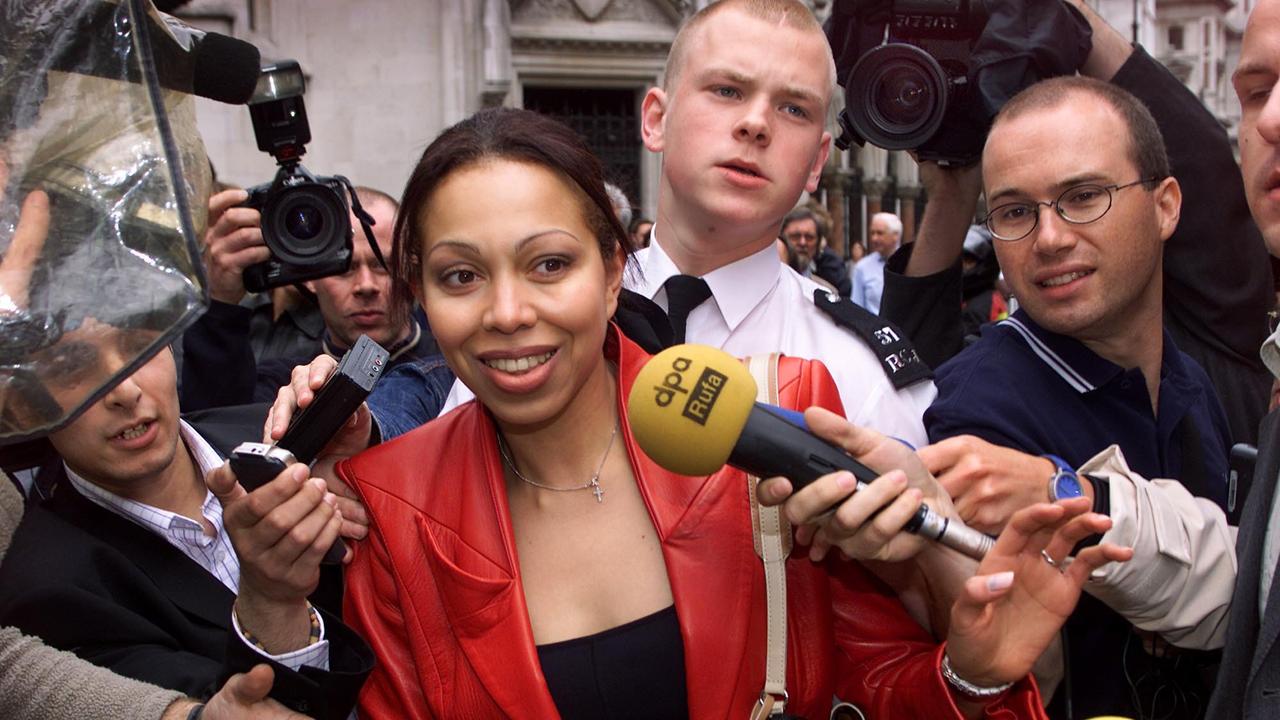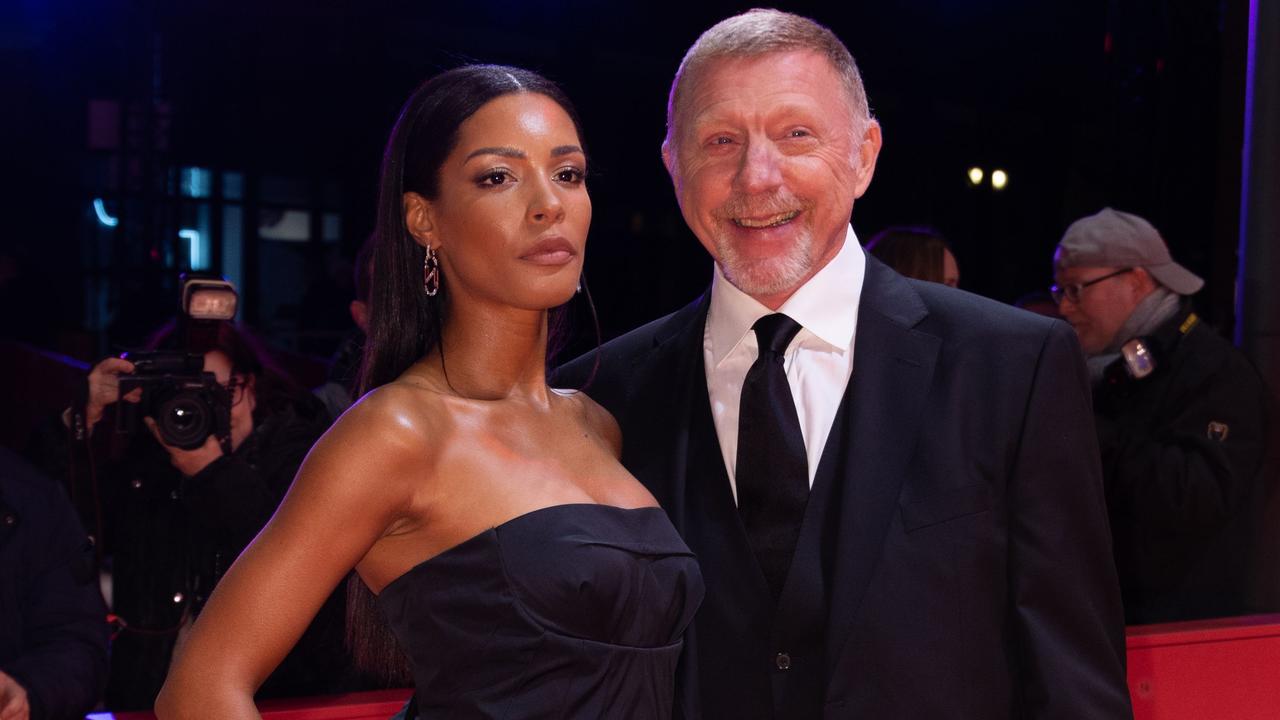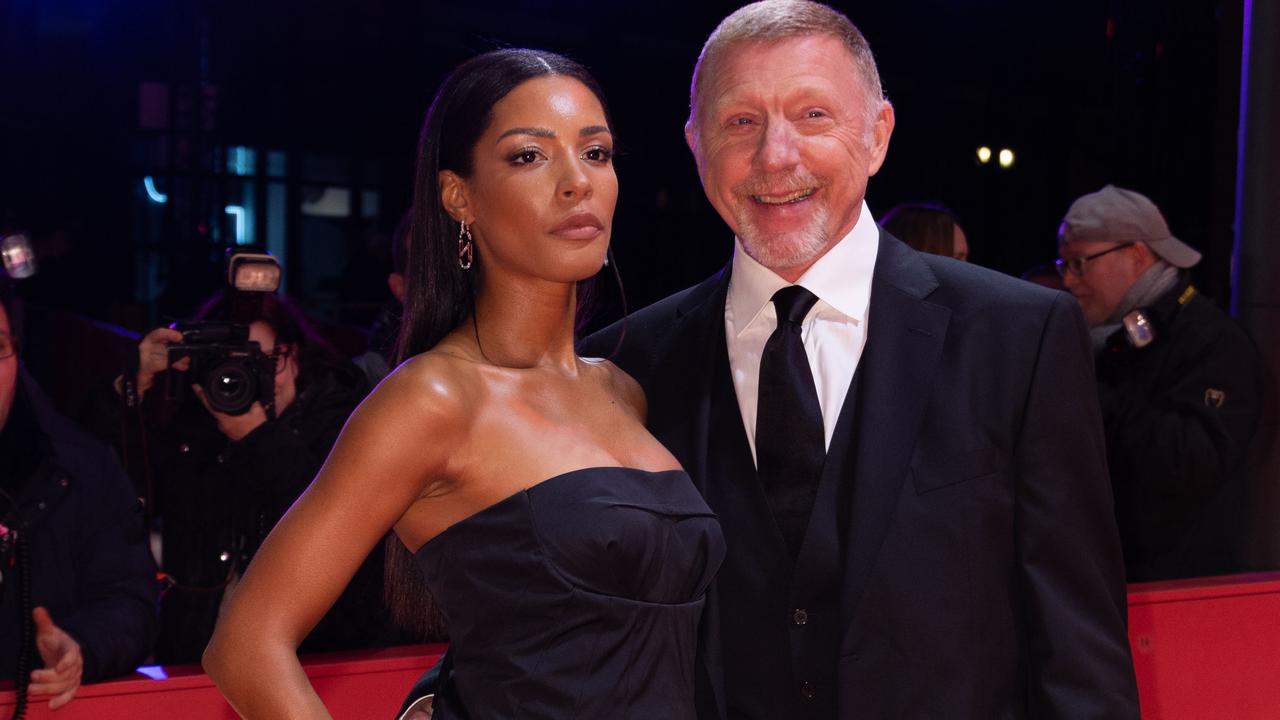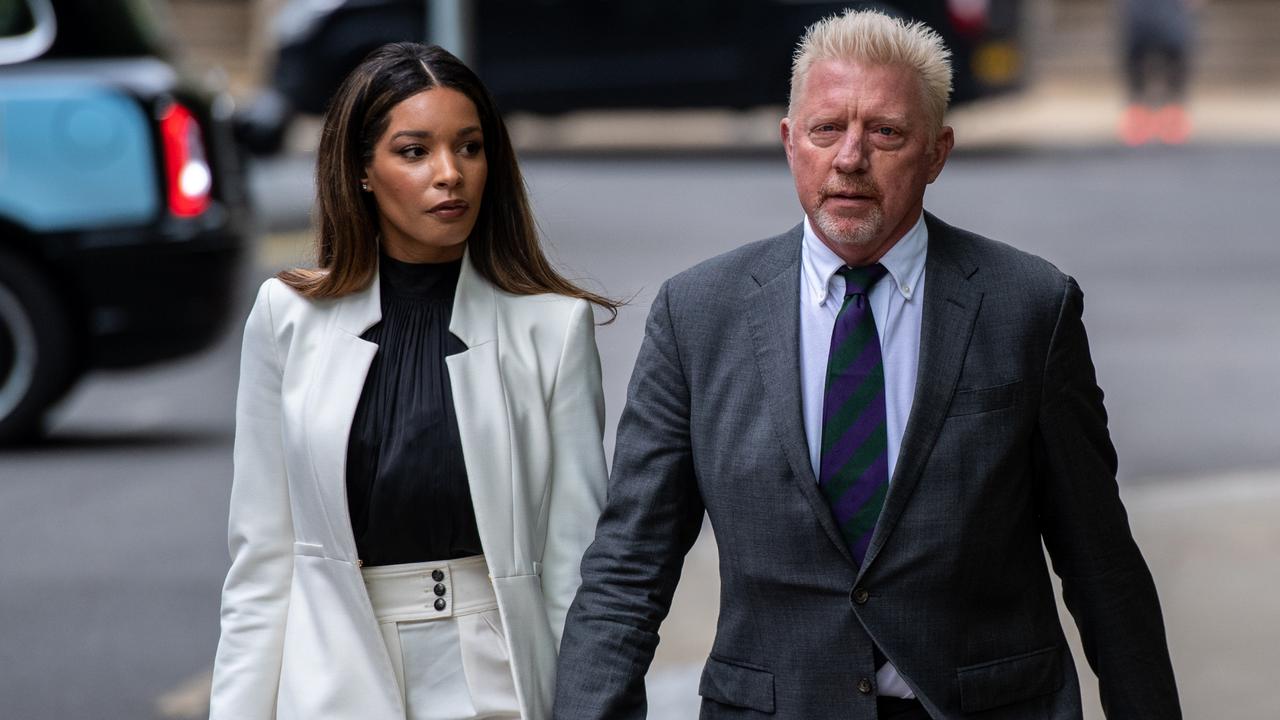From Wimbledon champion at the age of 17 to bankrupt prison inmate at 54, Boris Becker’s spectacular rise and fall has been one of the most extreme in sporting history.
Now a new Apple TV+ documentary charts how the German tennis wunderkind became a high-rolling playboy who blew an estimated $185 million on women and a jet-set lifestyle — until debt caught up with him, The Sun reports.
In the docu-series ‘Boom! Boom! The World Vs Boris Becker’, the star breaks down while being interviewed for the show just 48 hours before his sentencing last year for illicitly transferring large sums of money and hiding assets after being declared bankrupt.
He tells viewers: “It’s hard. I’ve hit my bottom, I don’t know what to make of it. I’ll face it. I’m not going to hide or run. I’ll accept whatever sentence I get.
“There is a reason this is happening. My life has always been a little different to other lives. My upbringing was different. Winning Wimbledon at 17 was different. And the next 36 to 37 years were very different.”
Boris, now 55, who was released from jail last December after serving eight months of his 30-month term, and deported to his homeland, adds in the TV reveal: “When you’re so young and you’re thrown into the big ocean with all the sharks, it’s very difficult to learn to swim.
“But once you learn to swim it’s a feeling of invincibility.”
The two-part documentary, out next week and produced by Ventureland and Jigsaw Pictures, explores the sense of invincibility around the young Boris.
Nicknamed Boom Boom for his huge serve, he became the youngest-ever Wimbledon men’s champ in 1985, and went on to be world No1 and win six grand slams including two more Wimbledon titles in 1986 and 1989.
Even after his famed diving volleys, he would pick himself up, brush himself down and claim the winner’s spoils.
But while ferocious self-belief brought Boris huge fame and fortune, it also contributed to the financial meltdown that saw him swap the adulation of Centre Court fans for a lonely British prison cell.
He enjoyed a stellar tennis career in the late Eighties and early Nineties despite an addiction to sleeping tablets and a rumoured addiction to sex, which both distracted him from the day job on court.

Model Angela Ermakowa leaves the High Court in London after winning a generous financial settlement from Becker.Source: News Corp Australia
But after leaving the game, there followed two failed marriages and a love-child from a rumoured fling in a restaurant broom cupboard — all of which hit his tennis fortune as hard as his happiness.
Despite the chaos, and his waning earnings, Boris continued to spend at an exorbitant rate.
It is a trait he says came from that dizzying first Wimbledon win in 1985, and earning the Boom Boom tag.
He flashed the cash like he flashed his serves, forehands and backhands.
Sadly, Boris was too young to know the value of the money that rolled in with trophy after trophy.
He admits he recalls never having a credit card, holding money or even going to a cash machine, as everything was taken care of by Romanian manager Ion Tiriac, dad Karl-Heinz and coach Gunther Bosch.
He tells the documentary: “By 17 I won my first million. So money goes out the window, you lose the sense of value. You don’t know that 99 per cent of people don’t ever earn a million pounds.

Boris Becker faced the music in London. Photo by Adrian DENNIS / AFP.Source: AFP
“A lot of athletes, we assume the money we earn during our careers will continue to come in afterwards.
“So we don’t adapt our lifestyles quickly enough. You keep spending money you don’t make any more, you keep spending money that you made before. So, yeah, I’m blaming me.”
But in the early days Boris felt he lacked back-up beyond his family and management.
He tells viewers: “I wasn’t fulfilled in my personal life, I wasn’t with the right friend, not the right girlfriend.”
That changed, it seemed, when he met Barbara Feltus and married in 1993.
It proved highly controversial in his native Germany because she was mixed race, but he stood by her.
The tennis prodigy had already had to cope with the glare of publicity in his homeland, where a newspaper editor once told him the only person who had sold more German newspapers than him was Adolf Hitler.
Then in 1999, Boris lost one of his guiding lights, dad Karl-Heinz, who died of cancer at 63.
He was also now saying goodbye to bumper tennis paydays, as his career drew to a close.
Then, in 2001, he and Barbara divorced and he was hit for a reported $185 million settlement.
Their eight-year marriage — from which they have sons Noah, now 29, and Elias, 23 — had collapsed in 1999 as Boris was forced to admit that he’d had sex with Russian waitress Angela Ermakova after crashing out of that year’s Wimbledon and retiring from tennis.
He was marking the milestone at top London restaurant Nobu, and ended up having what was reported as being “the most expensive five seconds” of his life . . . in what was said to be a broom cupboard.
He tells TV viewers: “I wouldn’t like to go into all the details but we went to the back room. No, it wasn’t a cupboard — the cupboard is way too small, it is impossible to have any sort of physical activity in the cupboard. We got together and we had sex. I had no number from Angela, I had no contact, and that was that.
“Eight months later I get a fax saying, ‘You may not remember me. Our last meeting is eight months old. Here’s my number, call me.’ I just couldn’t believe it.
“The next week I met Angela in London and was under pressure.
“She came in, she had a big coat on, she took the coat off and she was heavily pregnant and she just explained to me that I’m the father of this child.”
The child was Anna, now 22.
Boris always admitted he thrived on the buzz of the tennis arena, and he knew there was only one way to match that high after hanging up his racquet: women.
He has said: “When it’s over with my profession, with playing tennis, I won’t look for a new profession where I can find excitement, I’ll search for that in my private life.”
He certainly made good on that pledge.
As well as the women, there were homes around the world, private jets and meals out at top restaurants.
But that spelled game, set and match, the wrong way, for his bank account as he turned to endorsements and investments that did not work out.
Many of his financial adventures dented his credibility, too, such as becoming an ambassador for an online poker company.
In 2002, he was handed a suspended two-year jail sentence and ordered to pay around three million euros for tax evasion after he had registered his business interests in tax-haven Monaco but meanwhile continued to spend time in his German homeland.
Boris did manage to still trade on past glories as he joined the BBC’s Wimbledon coverage from 2002, as a cheery pundit, and from 2013 was for three years coach to possibly the greatest tennis player of all time, Serbian Novak Djokovic.
Then in 2009 he married again, to Dutch model Lilly Kerssenberg, who gave birth to his fourth child, Amadeus, a year later.
But Boris and Lilly, now 46, had a messy split in 2018.
By this point, he had declared himself bankrupt.
In 2017, Swiss businessman Hans-Dieter Cleven claimed Boris owed him £33million after their partnership went sour, and he already owed £11million to private bank Arbuthnot Latham, dating back to 2015.
At London’s Southwark Crown Court last year he was found guilty of four charges under the Insolvency Act — mainly based around the fact he failed to hand over assets and trophies worth around £2.5million to repay his debts.
With the world watching, he was sent to the cells and a defeat bigger than any of his most crushing big-match losses.
Boris’s latest girlfriend, Lilian de Carvalho Monteiro, has stood by him through his time in jail, and despite hitting rock bottom he vows to bounce back.
Staring into the camera through tear-filled eyes, he says: “That’s not the end yet — there’s going to be another chapter.”








